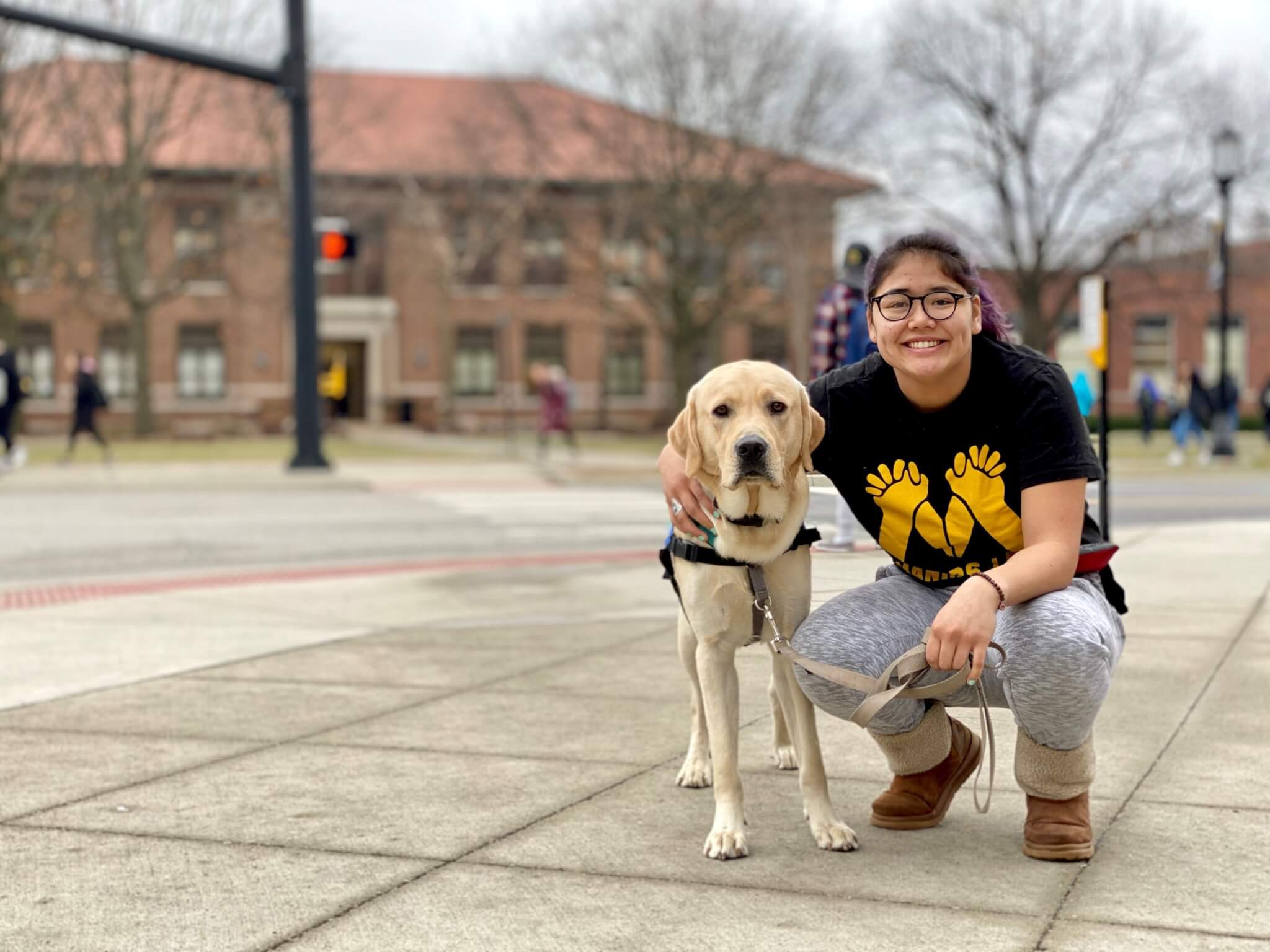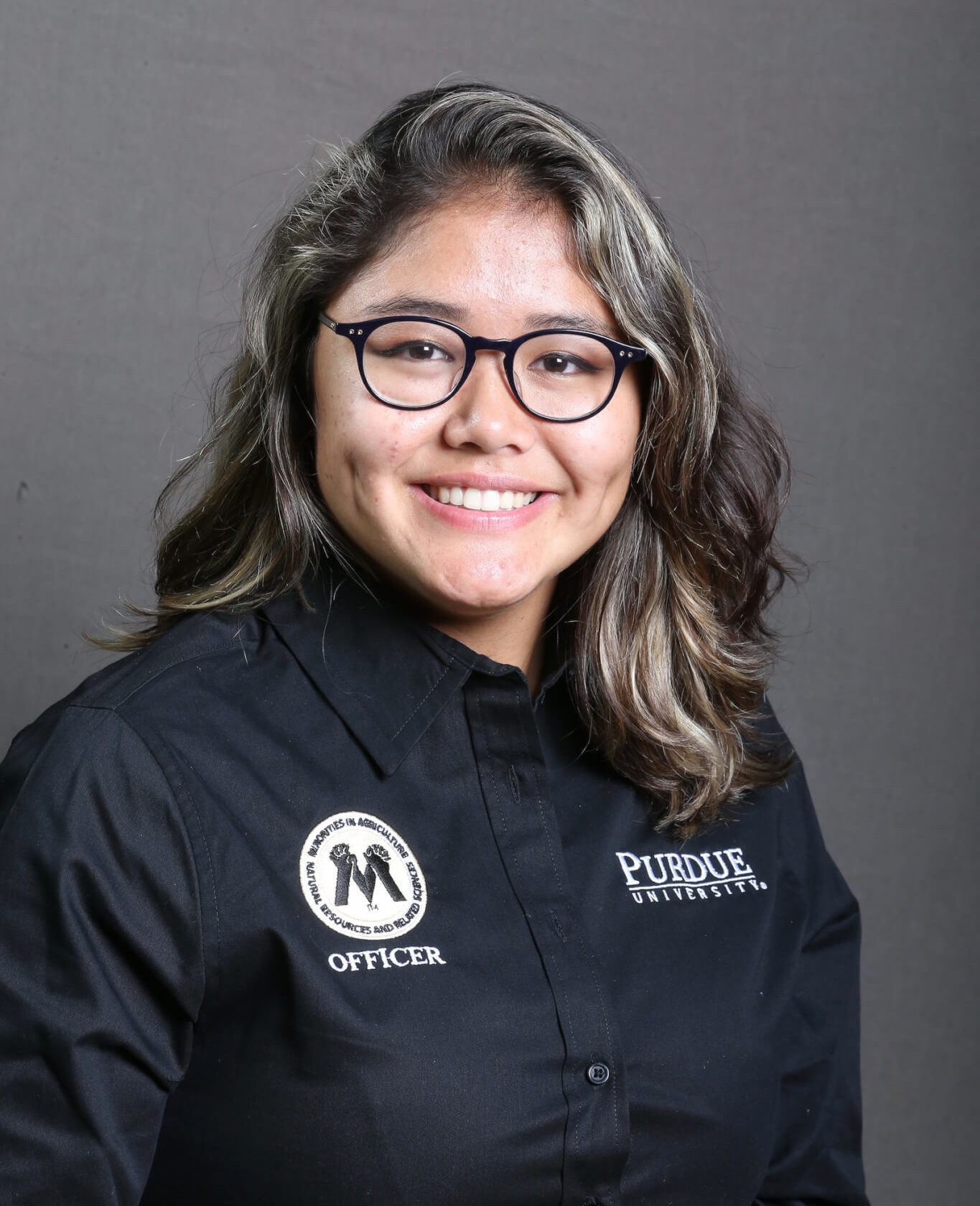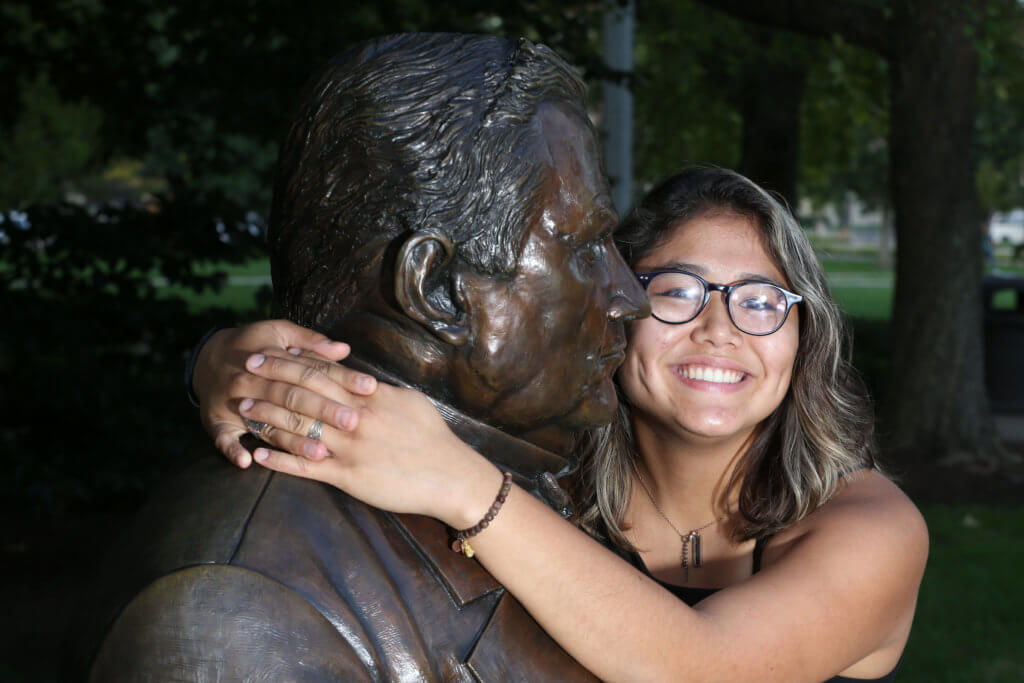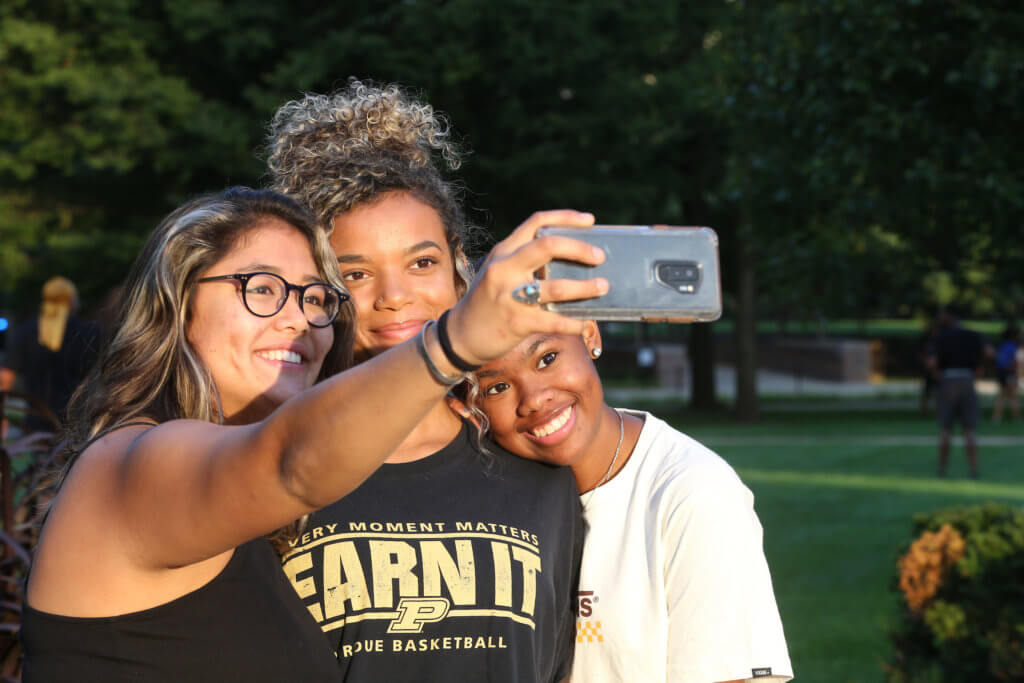Student learns from two and four legged friends
"I love seeing that light in a dog’s eyes, when everything clicks and they realize ‘Wow, all these skills I’ve been learning my whole life have a purpose.’ You can see it in the clients’ eyes too when they meet their dog and realize, ‘I’m not alone. I have purpose. Because of this dog, I can tackle the world.’”
Nira Grynheim, a sophomore in the Department of Animal Sciences, studies animal behavior and well-being. She is also pursuing minors in critical disability studies and psychology.
“Coming to Purdue, I loved animal sciences, but I was worried about the agricultural side of it. I’m from a city. I’d pet cows before, but I didn’t know anything about agriculture.”
 Photo by Tom Campbell
Photo by Tom Campbell 
As I took classes, I realized agriculture’s pretty great. MANRRS helped me realize it was more than just farming. It’s innovation and it’s creation.”
MANRRS is a national society that promotes academic and professional advancement by empowering minorities, supplying the industry with a diverse pool of talented leaders.
“Being in MANRRS forced me to seize the opportunities that were in front of me,” said Grynheim. “MANRRS is very encouraging and urges people to get involved in leadership positions.”
Grynheim served on the MANRRS executive board her freshman year as an undergraduate agricultural representative. “That was a really good opportunity for me because I was able to go to Agricultural Council events and retreats.”
“In MANRRS, we are trying to help people realize that ‘minority’ doesn’t just mean color. A minority could be someone with disabilities,” noted Grynheim.
“We’re trying to promote more inclusion by reaching out to other minority organizations across campus to create a community amongst us.”
Grynheim, who was born in Öskemen, Kazakhstan, remembers how she felt coming to Purdue, “It was a big shift, coming here and thinking I would have to make a whole new kind of friend group. MANRRS really helped with that transition.”
 Photo by Tom Campbell
Photo by Tom Campbell By volunteering with Indiana Canine Assistant Network (ICAN), Grynheim meets and helps people in a setting that utilizes her experience in animal sciences, critical disability studies and psychology.
Grynheim explained, “ICAN has a dual mission of rehabilitating and educating incarcerated individuals while training service dogs and pairing them with people that have physical or developmental disabilities.”
“Prisons are actually a great place to train dogs. Our handlers have strict schedules and a lot of time on their hands, which is helpful for the dogs,” said Grynheim. We usually select handlers who have a longer sentence so they can develop their skills.”
Every six weeks, service dogs leave the prison to live with ICAN volunteer furlough trainers like Grynheim. For three weeks, the dogs socialize in the outside world. For Grynheim’s dogs, this means attending classes at Purdue, exploring campus and living in her residence hall.
“You get to meet a broad range of people in the volunteer community. I’ve met so many people with amazing stories about what their lives are like. When you get to see the powerful connections these dogs can create with individuals, that’s an indescribable experience.”






